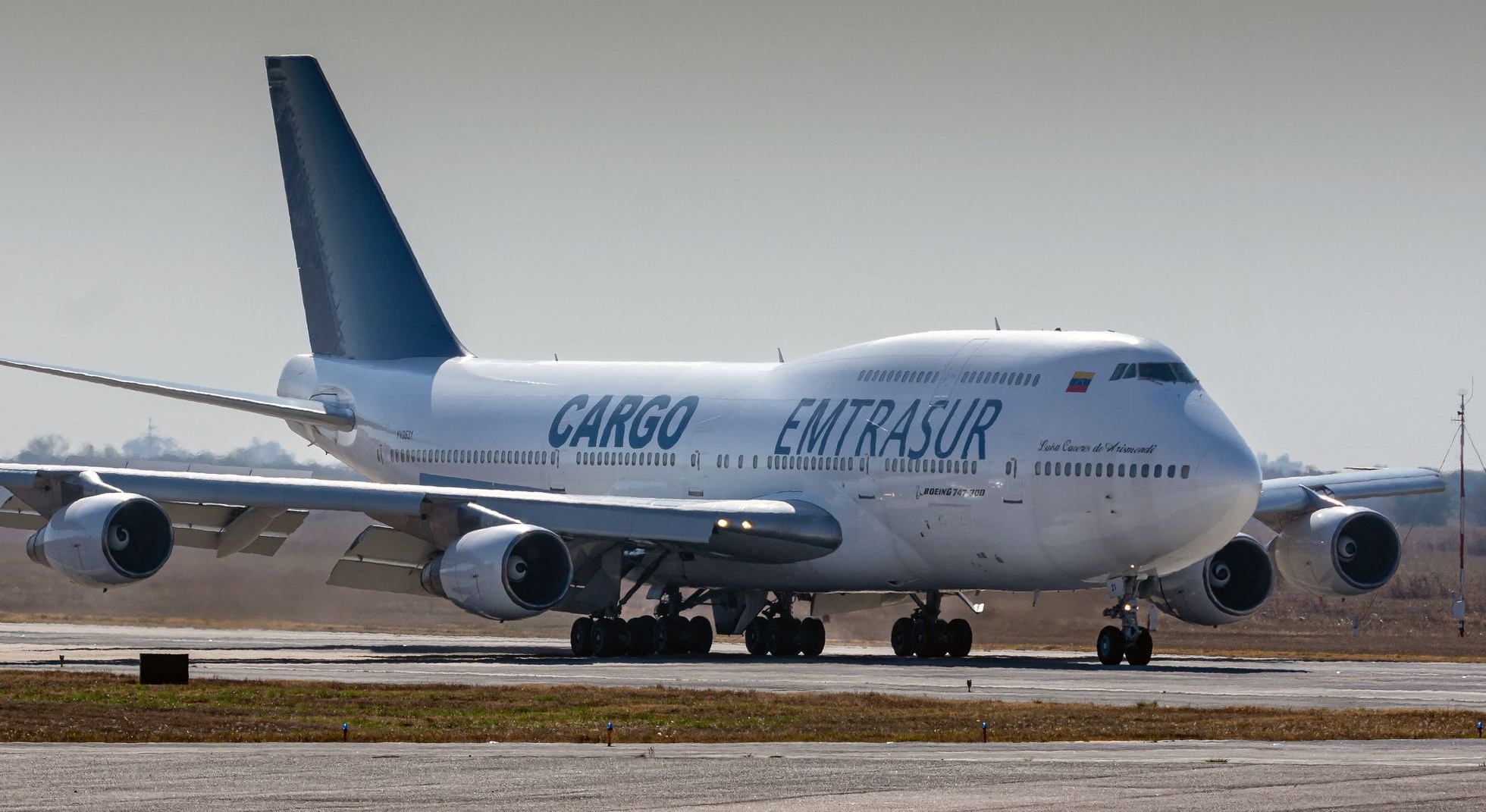Argentina seizes a Venezuelan cargo plane with an Iranian crew
The aircraft has not been getting fuel for a week due to the companies' fear of a US sanction. Behind it is a diplomatic imbroglio and a suspicious name for its links to a terrorist attack

The landing of a Venezuelan-flagged plane in Buenos Aires has started an unexpected diplomatic mess. On June 6, a Boeing 747-300 from the company Emtrasur, the cargo subsidiary of Conviasa, based in Caracas, arrived in Ezeiza from Mexico with its warehouses full of auto parts. Two days later, the plane tried to fly to Uruguay, but was denied landing and returned to the starting point. The Uruguayan refusal drew attention in Buenos Aires. Opposition deputies asked for reports. The Government reviewed the cargo and crew documentation. The result was 14 Venezuelans and five Iranians held in a hotel and a plane that cannot take off due to lack of fuel.
Understanding the novel “of the Venezuelan-Iranian plane”, as the press calls it, means untangling a plot that involves four countries: Argentina, Venezuela, Iran and the United States. According to the first investigations, the Embrasur Boeing has been a Venezuelan for a short time: until last January and for 15 years it flew for the Iranian airline Mahan Air, a company sanctioned by the United States. From there they warned that any foreign company that provided logistical assistance would be punished. That is why the plane is stranded: neither the Argentine state oil company YPF nor Shell wanted to sell it fuel. A plane prostrated by lack of gasoline is already a story, but there is more.
The Emtrasur flight left Mexico a week ago with its warehouses loaded with auto parts. Two Iranian pilots took command. The Argentine authorities did not find anything strange in the documentation and allowed the landing. The cargo was as declared and the crew list did not attract attention. At least until this Monday. The Minister of the Interior, Aníbal Fernández, admitted that “after the entry” of the plane, “information was received, through different channels, from foreign organizations that warned that part of the crew belonged to companies related to the Quds Force of the Iranian Revolutionary Guard.” The situation became extremely delicate. The US considers Al Quds a terrorist group. Argentina accuses members of Al Quds of being behind the 1994 attack that blew up the headquarters of the Jewish mutual society in Buenos Aires, AMIA. 85 people died in the attack, the worst recorded in the South American country.
The spotlight is on one of the plane’s crew, named Gholamreza Ghasemi Abbas. “He is a relative of the Iranian Interior Minister and his name coincides with that of a member of the Revolutionary Guard and administrator of a company linked to Al Quds,” said Minister Fernández. “If you ask me if it’s him, I don’t know, the name matches. The rest is an analysis that we will do in conjunction with Immigration and surely the Airport Security Police will do the same, ”he said.
What is Gholamreza Ghasemi Abbas doing in Buenos Aires, aboard a Venezuelan cargo plane? Why would an aircraft that needs five crew members carry 19? Those questions were asked by the Delegation of Argentine Israelite Associations (DAIA), which asked the justice to investigate the aircraft and its passage. According to the route sheet of the Emtrasur plane, during the last month it landed in Paraguay (where it left a load of cigarettes), in addition to Belarus, Tehran, Moscow. For the president of the DAIA, Jorge Knoblovits, “terrorists make trial and error.” The flight would have, under this reading, the mission of measuring the control capacity of different airports. “A Venezuelan plane is enough to worry about. An Iranian plane is also something to worry about. An Iranian-Venezuelan plane is more to worry about,” Knoblovits said. “Iran is a terrorist state. In this country there are two unpunished terrorist attacks, to the Israeli embassy and the AMIA”, he added.
The Jewish community is highly critical of Argentina’s investigation of the attacks. And much more about the relationship between Kirchnerism and Venezuela and Iran. The DAIA does not forgive Cristina Kirchner for the memorandum she signed in 2013 with Tehran that tried to facilitate the declaration of the Iranians accused of the attack, many of them high-ranking government officials. The text was approved by the Argentine Congress, but never entered into force because the Iranian Parliament rejected it. However, it cost former President Cristina Fernández de Kirchner a court case, on charges of cover-up. The prosecutor who investigated her, Alberto Nisman, was found dead in his apartment four days before presenting his report to deputies, under circumstances that are still unclear.


